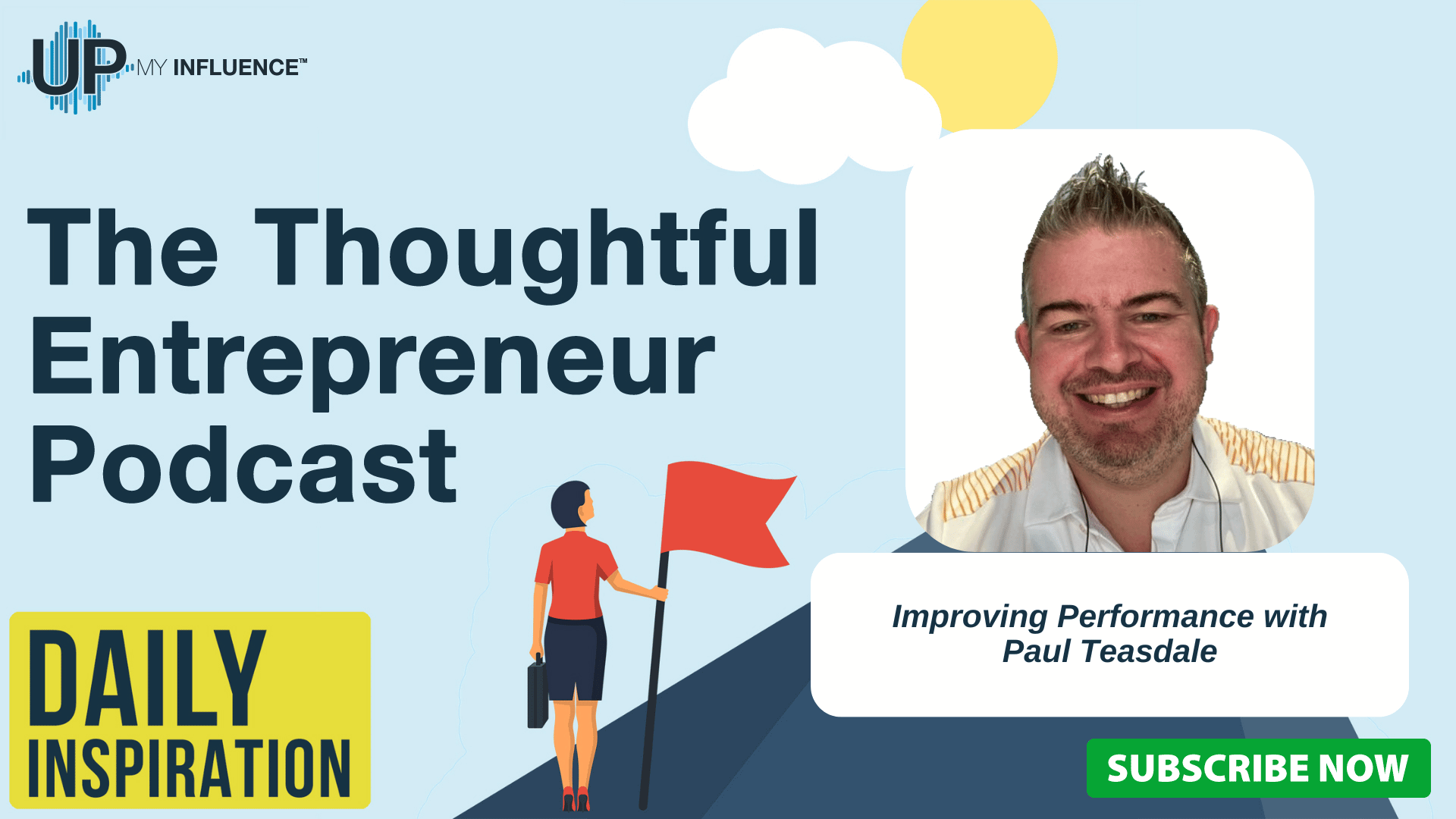THE THOUGHTFUL ENTREPRENEUR PODCAST
In this episode of the Thoughtful Entrepreneur, your host Josh Elledge speaks with the Podcast Host, Speaker & Business Coach Paul Teasdale.

Paul's work is as unique as his background. He takes insights from his experience in high-performance teams, specifically in Formula 1, and makes them accessible to leaders and teams looking to improve their performance.
His approach is multi-tiered, starting with speaking engagements to introduce insights from Formula 1, followed by facilitation and workshops to help organizations apply those insights to their situations.
Paul's interest in Formula 1 goes beyond the typical fan's perspective. He appreciates the high-performance aspect of the sport and enjoys watching the nuances and behind-the-scenes details.
These give him a different perspective on the commentary and strategies, and he believes that good commentating doesn't always align with the reality of the situation.
Paul speaks for a variety of organizations, covering a range of topics. His unique blend of experience and insights from Formula 1 make him a sought-after speaker and facilitator. His work is all about helping organizations improve their performance through data-driven decision-making and the application of high-performance team methodologies.
Key Points from the Episode:
- Introduction of Paul Teasdale and his work in high-performance teams, specifically in Formula 1
- Paul's multi-tiered approach to helping organizations improve their performance
- Paul's background in operations management, consulting, banking, and Formula 1
- The importance of data-driven decision making in Formula 1 and how Paul helps organizations apply that approach
- Paul's interest in Formula 1 and his perspective on the sport as a non-fanatic
- Comparisons between sausage making and the fast-moving consumer goods industry in terms of measuring performance
- The importance of measuring the right things to drive desired behaviors and results
- Examples of how measuring the wrong things can lead to poor behaviors in industries like banking
About Paul Teasdale:
Paul Teasdale is a seasoned professional with seven years of experience working with the Formula 1 team McLaren. He brings a wealth of knowledge from his diverse background, having collaborated with various high-performance organizations in fields such as sausage making and banking.
Based in the UK and New Zealand, Teasdale offers valuable insights to help people enhance their performance. His expertise extends to practical tips for implementing an F1 mindset within organizations.
With a rich tapestry of experiences, he shares compelling stories, ranging from the world of Formula 1 to the impact of sausage making on the business banking sector.
Whether seeking advice on organizational strategies or engaging anecdotes that blend different industries, Paul Teasdale provides a unique perspective that resonates with audiences seeking inspiration and practical wisdom.
Tweetable Moments:
05:36 – “I think so many of us end up making a lot of our decisions purely, well, or predominantly based on emotion, whether we believe it or not.”
12:40 – “Think about the standards that you're using and how that can impact the performance that you're trying to drive and the results, but most of all, the behaviors.”
Apply to be a Guest on The Thoughtful Entrepreneur:
https://go.upmyinfluence.com/podcast-guest
Links Mentioned in this Episode:
Want to learn more? Check out Paul Teasdale at
Check out Paul Teasdale on LinkedIn at
https://www.linkedin.com/in/pauljamesteasdale/
Check out Paul Teasdale on Twitter at
https://twitter.com/pauljteasdale
Don’t forget to subscribe to The Thoughtful Entrepreneur and thank you for listening. Tune in next time!
More from UpMyInfluence:
We are actively booking guests for our The Thoughtful Entrepreneur. Schedule HERE.
Are you a 6-figure consultant? I’ve got high-level intros for you. Learn more here.
What is your #1 Lead Generation BLOCKER? Take my free quiz here.
Want to learn more about all the podcasts managed by UpMyInfluence? Opt in here.

